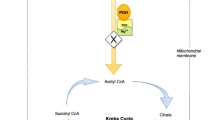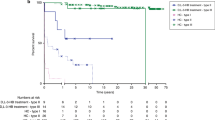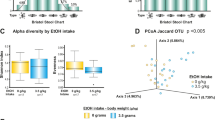Abstract
RECENTLY, metronidazole (‘Flagyl’) has been used in the treatment of alcoholism1 and it has been suggested that it might inhibit alcohol dehydrogenase2. We wish to present evidence to shed light on this suggestion.
This is a preview of subscription content, access via your institution
Access options
Subscribe to this journal
Receive 51 print issues and online access
$199.00 per year
only $3.90 per issue
Buy this article
- Purchase on Springer Link
- Instant access to full article PDF
Prices may be subject to local taxes which are calculated during checkout
Similar content being viewed by others
References
Taylor, J. A. T., Bull. Los Angeles Neurolog. Soc., 29, 158 (1964).
Metronidazole in Alcoholism. Preliminary Information for Clinical Investigators (second edition) (May and Baker Ltd., 1966).
von Wartburg, J. P., Papenberg, J., and Aebi, H., Canad. J. Biochem., 43, 889 (1965).
Kane, P. O., McFadzean, J. A., Squires, S., King, A. J., and Nicol, C. S., Brit. J. Vener. Dis., 37, 273 (1961).
Author information
Authors and Affiliations
Rights and permissions
About this article
Cite this article
EDWARDS, J., PRICE, J. Metronidazole and Human Alcohol Dehydrogenase. Nature 214, 190–191 (1967). https://doi.org/10.1038/214190b0
Issue Date:
DOI: https://doi.org/10.1038/214190b0
This article is cited by
-
Effect of metronidazole on the action and biological transformation of ethyl alcohol
Bulletin of Experimental Biology and Medicine (1970)
-
Inhibition of oxidizing enzymes by metronidazole
Experientia (1968)
Comments
By submitting a comment you agree to abide by our Terms and Community Guidelines. If you find something abusive or that does not comply with our terms or guidelines please flag it as inappropriate.



